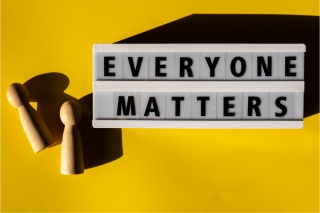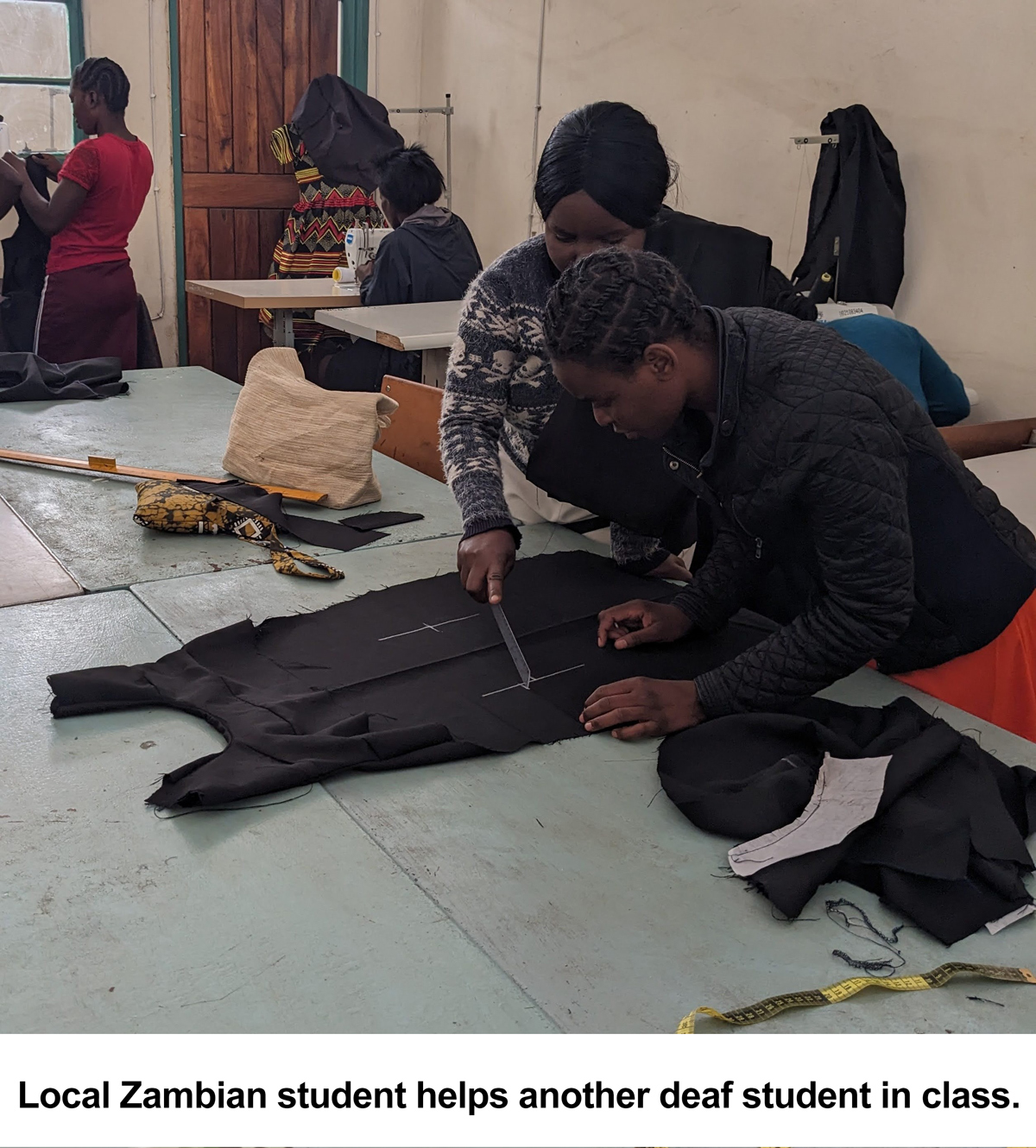
Developing Empathy in Students by Understanding Others’ Experiences
02 January 2024A cultural lesson in empathy helps tackle the real empathy decline in the American public.
By Elise Chonko, Baking and Pastry Arts Instructor at the Chesterfield Career and Technical Center at Hull Street in Richmond, Va.
Feedback & comments: This email address is being protected from spambots. You need JavaScript enabled to view it.
This past summer, I was lucky enough to travel to Zambia with a group of American educators. Our goal was to learn about the country’s systems of education, business and industry, and how they are interconnected. As a delightful byproduct of our visit, we learned about the wonderful Zambian people. What I wasn’t prepared for was how jarring the cultural contrast would be between the Zambians we interacted with and some of my group members during certain interactions. The largest element I saw missing from my travel partners was a lack of empathy. Empathy is something American citizens have less of, but I think it’s what we need more of. I’ve recently been reflecting on why this is and what I can do to help develop empathy in my students.
After doing some research, I found several studies to back up my thoughts about the decline of empathy in the US. There was one study from 2011 that found college students’ empathic concern declined by 48 percent between 1979 and 2009. In another more recent study from 2021, 42 percent of the respondents said empathy had declined, but what I found more disturbing was that 25 percent said that empathy does not matter. Does what someone else experiences and feels matter? I think it does and so do the Zambians.
Traditionally, Zambians believe in the African philosophy of Ubuntu, which, if condensed down into one phrase, could be defined as, “I am because we are.” This philosophy values a group over an individual because an individual isn’t able to achieve their potential without their community. While the idea of Ubuntu is under threat due to Westernization, the way of thinking can still be witnessed throughout Africa. In contrast, American culture promotes individualism.
Rose Harper reported in her study, “How does empathy vary across different cultures?” that cultures that tended to be more collectivistic have higher empathy scores and, in contrast, cultures that are more individualist – the majority of the Western world – tended to score lower on empathy.
The greater good philosophy has created a deep cultural empathy level that most Americans don’t exhibit. Many of the Zambians we interacted with showed us examples of Ubuntu in how they spoke to us and also in how they treated us. But, the group I traveled with didn’t always reciprocate in kind.
I am not trying to ride on a high horse and say that I am the perfect embodiment of Ubuntu. What I am attempting to convey is a contrast that deserves reflection as a society. How can we show more empathy toward others? How can we, as educators, help our learners develop empathy? I believe a way to tackle the empathy decline is to teach it in classes.
I am working on a lesson plan based on my Zambian experience that I hope will help students gain some understanding and empathy. I plan on cooking some of the most important dishes: nsima, rape (a leafy green dish with an unfortunate spelling and pronounced “rep”), and beef stew, with the promise of a family meal after.
Once the food is prepared, I plan to randomly assign levels of wealth to my students based on current Zambian data. For example, maybe 1 or 2 students will be rich, 3 or 4 will be middle class, and the majority of students will be poor. The poor students will be served nsima, in theory because that is all they can afford. The middle class will receive some greens to go with their nsima. The upper class will be able to eat as much nsima, greens and meat as they want.
The hope is, of course, that the middle class and rich students see that their classmates worked just as hard as they did to prepare the meal but were left with little to eat. I wonder if the middle- and upper-class students will offer to share their food with the others? Regardless of the students’ actions, I will host a class discussion about how the students in each wealth class felt about their allotment and how that lesson can be expanded to their everyday lives.
Empathy is an incredibly difficult attribute to teach. I hope that by putting students in a position of “less than” or “not equal” they will be embraced with empathy from their classmates. Even if they don’t, I hope they remember the feeling of inequality and can reflect on how their peers might feel in daily life scenarios.
Our youth are increasingly becoming less and less socialized and more distant from one another. But, if I can spark a conversation about empathy, maybe it can start them on a journey to consider others before they post that comment, say that insult, or make a funny face about their peer.
Editor’s Note:
Elise Chonko is writing a series of articles based on her Zambian experiences for the Gold Medal Classroom. Her previous articles include:
Creating Life Skills by Teaching Self-Sufficiency and Instilling an Entrepreneurial Spirit: Entrepreneurial skills are more than opening a business: It's how to be a self-sufficient and successful adult.
Teacher’s Study Abroad Program Opens Eyes and Hearts: Zambian people teach lessons that translate into US culinary programs.
